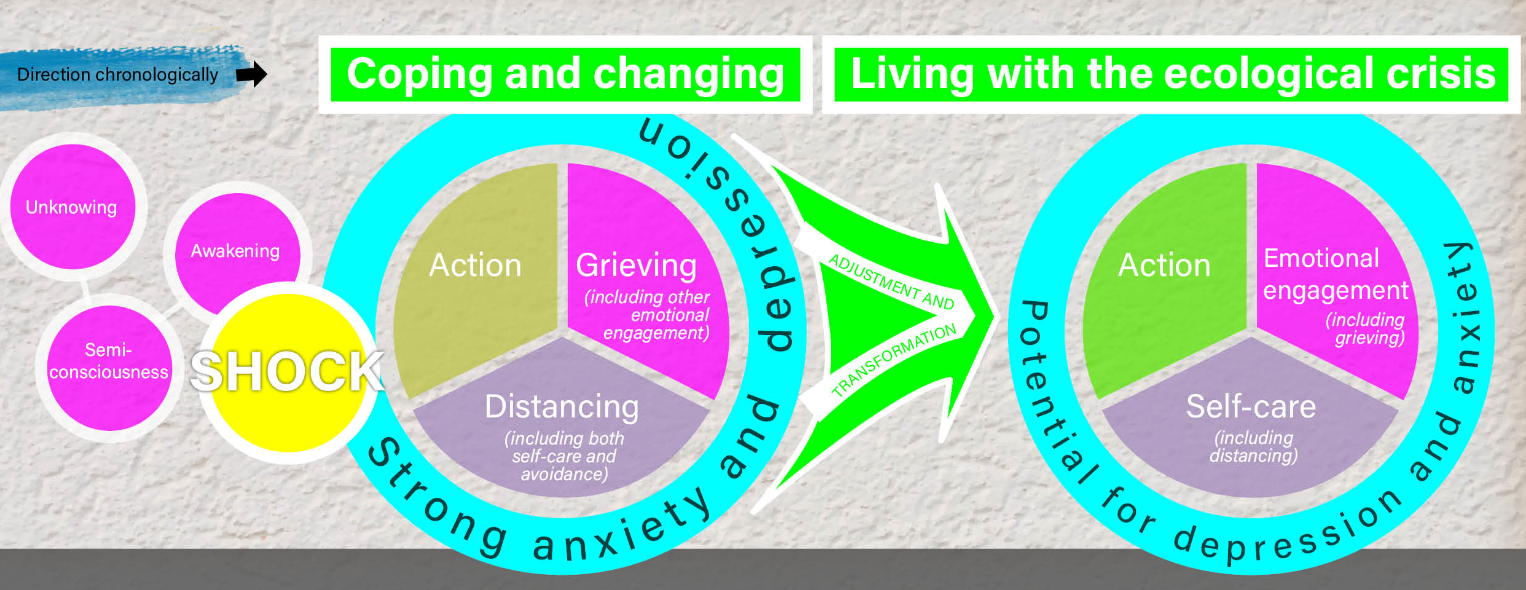What Is Climate-Aware Therapy?
Climate Emotions
The world recorded its hottest day ever on 06 July 2023 and this record will likely be broken again soon. Which thoughts and emotions come up for you when you read about yet another extreme weather event? Are you feeling anxious, angry or sad? Can you feel despair or hopelessness creep in? Or do you keep scrolling and try to quickly distract yourself because if you don’t, it’s just too overwhelming? All of those reactions are typical emotional expressions in the face of a threat. More and more people start to realise that the changing climate indeed poses a risk to humanity and can feel the impacts on their mental health – consciously or sub-consciously. However, there aren’t many places to openly talk about it.
How Climate-Aware Therapy Can Help
Climate-aware therapy offers you a non-judgmental space to express the heavy feelings connected to the state of our world. You don’t need to worry that you are going to “kill the mood” or that you are not taken seriously. Unfortunately, this often happens in other social settings for different reasons. Your conversational partner might not yet be ready to acknowledge the severity of the crisis or might start feeling anxious when talking about the topic, maybe even saying that it’s too late already anyways. Fatalism and denial are common psychological defense mechanism in the face of climate change.
Climate-aware therapists of course are not exempt from feeling the emotional repercussions of our changing world. However, they have gone through their own process of facing the intense emotions that come up when recognising humanity’s predicament. After having arrived in a state of acceptance rather than anxiety, therapists can use their knowledge and skills to hold space for another person to address their climate distress in a safe space.
While climate emotions should not be pathologised, they can affect all areas of life and might lead to or worsen mental health challenges. Climate-aware therapists empathise with the emotional distress their clients feel and actively listen to their concerns. They use different techniques to support their clients to build psychological resilience, process their emotions and eventually transform them into action. Climate psychology educator Leslie Davenport explains that the goal is not to get rid of the intrusive feelings but to find a balance of sustainable distress: “We must become more comfortable in uncertainty, and remain present and active in the midst of fear and grief.”
The Transformational Potential of Our Times
While it can be frightening to fully open yourself to the predicament humanity is in, it also offers huge transformational potential. More and more people allow themselves to feel the pain of our world and turn it into action. As Joanna Macy, an environmental activist, author, and scholar of Buddhism, says:
„The most remarkable feature of this historical moment is not that we are on the way to destroying our world–we’ve actually been on the way quite a while. It is that we are beginning to wake up, as from a millenia-long sleep, to a whole new relationship to our world, to ourselves, and to each other.“
If you need support in processing your climate emtions or have any other concerns, please feel free to reach out to me.

